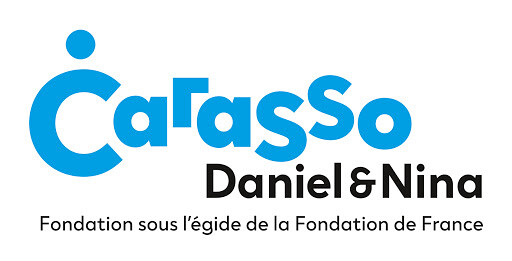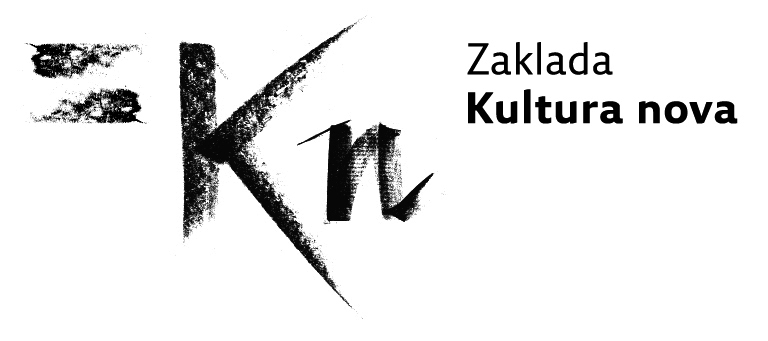Analysing Decolonial Climate Perspectives. The Case of the Brazilian Legal Amazon
Climate change is a multifaceted, cross-disciplinary challenge that demands continuous reflection and the inclusion of diverse perspectives in its discourse. To adequately address climate change, it is essential to consider topics like culture, education, and the historical colonial legacies that have shaped global relations. This study, conducted within IFA’s Research Programme Culture and Foreign Policy explores the potential and challenges of adopting a more decolonial approach to international cooperation on environmental and climate issues, using education and culture as foundational tools. The study focuses on the German Climate Foreign Policy concerning the Brazilian Legal Amazon region. It incorporates a literature review, semi-structured interviews, and roundtable discussions to gather insights from various stakeholders connected to the research subject.
ART FOR THE PLANET’S SAKE – Arts and Environment
This publication looks at how contemporary arts tackle environmental issues in terms of artistic content, managerial practices and venue management. It seeks to capture a snapshot of the activity being pioneered by the arts and culture sector. It explores the role and power of artists and creators as messengers of climate change and presents how art communities try to work sustainably, thus extending “sustainable practice” beyond a purely conceptual subject matter in art. The publication showcases instances of organisations, projects, and practices that intertwine the arts with the environment. It is produced by IETM in collaboration with COAL, and written by Hannah Van Den Bergh. A set of guest contributions from five international experts (Chantal Bilodeau, Marco Kusumawijaya, Mike Van Graan, Sacha Kagan and Yasmine Ostendorf) enrich the publication, touching upon issues like measuring impacts, connections between artists and local communities, Sustainable Development Goals, sustainability as “response-ability”, and how cultural differences change the possible approaches to sustainability.
From Praxis to Policy: Environmental Shift through Art and Culture
The publication was developed and produced by Lokomotiva as part of the Art Climate Transition project. The book is divided into four chapters: Cultural Policies and Institutions, Ecofeminist Alliances and Tactics for the Future, (Un)learning Practice, and Possible Worlds.
Mobility in Culture: Conceptual Frameworks and Approaches. i-Portunus Houses, Volume 1
This publication is the first volume issued within the “i-Portunus Houses – Kick-Start a Local Mobility Host Network for Artists & Cultural Professionals in All Creative Europe Countries” project implemented by The European Cultural Foundation, MitOst and Kultura Nova Foundation. This volume addresses different aspects of mobility in culture, highlighting current thinking and perspectives and suggesting our future’s main challenges. The book features eight chapters written by scholars, researchers and prominent voices from different parts of Europe, covering mobility from a variety of angles: mobility studies, EU policies for the mobility in culture, mobility formats and challenges, perspectives of artists and cultural professionals, digital mobility, the role of hosts in mobility, the significance of mobility for local communities as well as ecological politics for mobility. The contributing authors are Jordi Baltà Portolés, Taru Elfving, Višnja Kisić, Marie Le Sourd, Mark Robinson, Noel B. Salazar, Goran Tomka, Helen Varley Jamieson, Dea Vidović, Claire Rosslyn Wilson and Ana Žuvela.
Study on Mobility in Culture: Perspectives of Artists/Cultural Professionals, Hosts and Funders. I-Portunus Houses, Volume 2.
This publication is the second volume issued within the “i-Portunus Houses – Kick-Start a Local Mobility Host Network for Artists & Cultural Professionals in All Creative Europe Countries” project implemented by The European Cultural Foundation, MitOst and Kultura Nova Foundation. This volume features an exploratory analysis of experiences, practices, needs, priorities and views from different actors concerning mobility in culture. Research was conducted through qualitative and quantitative methods. Based on the collected data, recommendations were developed for the improvement of cross-border mobility infrastructure in culture. The authors of this Volume are Marta Jalšovec, Petra Rodik, Dea Vidović and Ana Žuvela.
Stories of Mobility: Evaluation of the i-Portunus Houses Grant Scheme: i-Portunus Houses: Volume 3
This publication is the third volume published within the “i-Portunus Houses – Kick-Start a Local Mobility Host Network for Artists & Cultural Professionals in All Creative Europe Countries” project implemented by The European Cultural Foundation, MitOst and Kultura Nova Foundation. This volume presents the evaluation results of the grant scheme developed within the framework of the i-Portunus Houses project through which grants were awarded to hosts for the mobility of artists and cultural professionals. In order to assess the outcomes of the i-Portunus Houses grant scheme, the evaluation included the experiences of both hosts and artists or cultural professionals. Authors of the evaluation study are Petra Rodik and Marta Jalšovec.
Slow Mobility: Scenario for the Future of Mobility in Culture. i-Portunus Houses. Volume 4
This publication is the fourth volume issued within the “i-Portunus Houses – Kick-Start a Local Mobility Host Network for Artists & Cultural Professionals in All Creative Europe Countries” project implemented by The European Cultural Foundation, MitOst and Kultura Nova Foundation. This volume introduces the concept of slow mobility as a response to the necessary changes in cultural mobility. The concept emerged from the theoretical insights, gathered data and analysis presented in the first three volumes of the publication, and was developed within the framework of a workshop dedicated to future planning. The participants of the workshop were Toni Attard, Philipp Dietachmair, Vedran Horvat, Dea Vidović and Ana Žuvela, the moderator was Jonas Drechsel, and the authors of the volume are Dea Vidović and Ana Žuvela.
Funding at the Intersection of Art and Environment: A Field Scan
Arts and culture have always been a part of essential movements for change, and environmental sustainability is no exception. Increasing numbers of artists and arts organisations are engaging with environmental issues, and a growing number of arts funders are considering and seeing this kind of work as both artistically valid and socially relevant. GIA commissioned Helicon Collaborative to conduct a scan of arts funders supporting environment-related work to explore this growing area of interest in the field. By highlighting funders’ practices in this area, GIA hopes to spark a broader conversation in the arts funding sector and to explore its own potential role in this realm.
Learning about climate change in, with and through art
This paper provides guidance for involvement in, with, and through art, and makes suggestions to create interdisciplinary links to support meaning-making, create new images and metaphors, and bring in a wider solution space for climate change. Going beyond the stereotypes of art as communication and mainstream climate change education, it offers teachers, facilitators, and researchers a wider portfolio for climate change engagement that makes use of the broad potential of the arts.
Sustainable Development and Cultural Policy: Do They Make A Happy Marriage?
The aim of this article was to foster debate within the academic community on the notion of culture as the fourth pillar of sustainable development. The article examines the origins of Agenda 21 and raises questions about its relationship with the challenges facing cultural and arts organisations, the different definitions of the term “culture” and the distinction between high and popular culture. It explores the links between these questions and the economic and market issues confronting stakeholders in the cultural sector as well as public policy makers.
Cultural Industries and the Environmental Crisis
This volume critiques the current model of the creative economy, and considers alternative models that may point to greener, cleaner, more sustainable and socially just cultural and creative industries. Aimed at the nexus of cultural and environmental concerns, the book assesses the ways in which artistic and cultural activities can help develop ideas of the “good life” beyond excessive and unsustainable material consumption, and explores the complex interactions between cultural prosperity, place and the quality (and availability) of employment, leisure and the rights to self-expression. Adopting a deliberately wide and inclusive interdisciplinary and international perspective, contributors to this volume showcase current and future ways of “doing” creative economy, ecologically, otherwise and differently.
Sensing Earth: Cultural Quests Across a Heated Globe
Sensing Earth states that our environmental issues are, first and foremost, a matter of culture and aesthetics. Technology and science are not enough to solve these problems. The book includes essays, interviews, poetry, manifestos, choreographic prompts, speculative fiction, and case studies operating at the intersection of art and activism, culture and nature.
Sustainable Theatre: Theory, Context, Practice
Written by a leading expert in the field of culture and environmental sustainability and distilling many years of research and hands-on experience, Sustainable Theatre: Theory, Context, Practice is intended to be relevant and useful to professionals involved in the theatre and performing arts sector in many different capacities: from policy-makers, arts leaders and managers to administrators, technicians, artists, scholars and educators.


